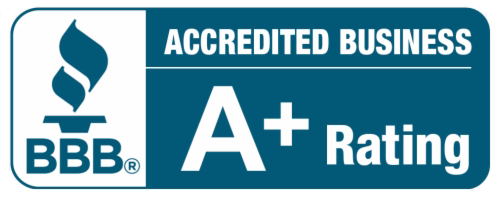Milan, Tennessee
Milan, TN
Established in 1858, Milan grew from the lands of B.A. Williamson and John Sanford, with John G. Shepherd opening the city’s first grocery store. Its early development was driven by the railroads, as the Memphis & Louisville and Illinois Central lines intersected here, positioning Milan as a key location for transportation and trade. The late 19th century saw businesses flourish along the tracks, with agriculture and small-scale manufacturing benefiting from easy access to wider markets. As industry expanded, the community grew, and the railroad continued to shape Milan’s identity well into the 20th century. The town’s importance was further cemented during World War II when it was chosen as the site for the Milan Army Ammunition Plant, a major employer that produced munitions for the war effort and continued operations for decades. The plant’s presence spurred population growth and increased Milan’s economic stability, ensuring that the town remained a vital part of West Tennessee.
Today, Milan is home to approximately 8,330 residents, a steady increase of 1.88% since the 2020 census. This gradual growth reflects the city’s continued appeal, balancing small-town charm with modern convenience. The local economy benefits from a blend of small businesses, agricultural enterprises, and manufacturing, with education and healthcare also serving as key employment sectors.
Milan’s deep connection to agriculture extends beyond its past, as it played a pivotal role in advancing sustainable farming practices. In 1981, the city became the birthplace of no-till farming in Tennessee, an innovative technique introduced at the University of Tennessee Agricultural Experiment Station. No-till farming revolutionized the industry by reducing soil erosion and improving crop yields, benefiting both the environment and farmers’ bottom lines. Over time, this method spread beyond Tennessee, influencing farming practices nationwide. Milan’s contributions to agriculture have not only shaped local farming techniques but also reinforced the city’s reputation as a leader in sustainable land management..
No-Till Field Day, held biennially on the fourth Thursday of July. This event draws thousands of farmers, researchers, and industry professionals from across the country to the University of Tennessee Agricultural Experiment Station. Attendees participate in demonstrations, discussions, and networking opportunities focused on advancing sustainable farming practices. The field day serves as both an educational resource and a testament to Milan’s ongoing influence in the agricultural sector.
For those interested in the region’s agricultural history, the West Tennessee Agricultural Museum provides a deeper understanding of how farming has shaped the area. The museum houses an extensive collection of historical farming equipment, from antique tractors to hand tools that illustrate the evolution of agriculture in West Tennessee. Exhibits include photographs, documents, and personal accounts from farmers who have worked the land for generations. Visitors can see firsthand how technology has transformed the industry while also gaining an appreciation for the craftsmanship and labor that once defined rural life.
Alongside its agricultural advancements, Milan has a history of prioritizing public health, becoming the first city in Tennessee to fluoridate its drinking water. This initiative, implemented in the mid-20th century, was part of a broader nationwide effort to improve dental health by reducing tooth decay through water fluoridation. At the time, the decision demonstrated forward-thinking leadership, as cities across the country debated the benefits of adding fluoride to municipal water supplies.
As summer turns to fall, the Milan Downtown Fall Festival takes center stage, bringing residents and visitors together on the second Saturday of October. The festival transforms downtown into a lively scene of artisan vendors, food trucks, live music, and family-friendly activities. Local businesses open their doors with special sales and promotions, drawing crowds eager to explore unique shops and eateries.
Just steps away, downtown Milan offers a variety of attractions that highlight the city’s character. Specialty shops like Antiques & Home Décor invite visitors to browse vintage furniture and collectibles, providing a glimpse into the past through carefully curated pieces. Elliott's Music & Nutrition Center, a store that blends musical instruments with health products, reflects the eclectic nature of local businesses. The historic Ritz Theatre, a longtime fixture in Milan, offers a nostalgic movie-going experience, maintaining its charm as a small-town cinema.
When it comes to dining, Milan has no shortage of flavorful options. The Chow Wagon has long been a go-to for American fast food, known for its juicy burgers and friendly service. For those craving authentic Mexican cuisine, El Gallero Mexican Restaurant serves up sizzling fajitas and homemade guacamole in a welcoming atmosphere. Smokin' Hot BBQ Drive-In brings the best of Tennessee barbecue, with slow-smoked pulled pork, ribs, and classic Southern sides that keep customers coming back. The variety of dining options reflects the city’s ability to maintain its small-town feel while offering high-quality meals that cater to different tastes.
Just as Milan offers a variety of dining experiences to satisfy your cravings, Supreme Roofing provides top-quality roofing services tailored to your needs. From repairs to full replacements, we ensure durability, efficiency, and expert craftsmanship. Protect your business with a roof built to last—contact us today for a consultation and experience the Supreme difference.
All Rights Reserved | Supreme Roofing Systems

